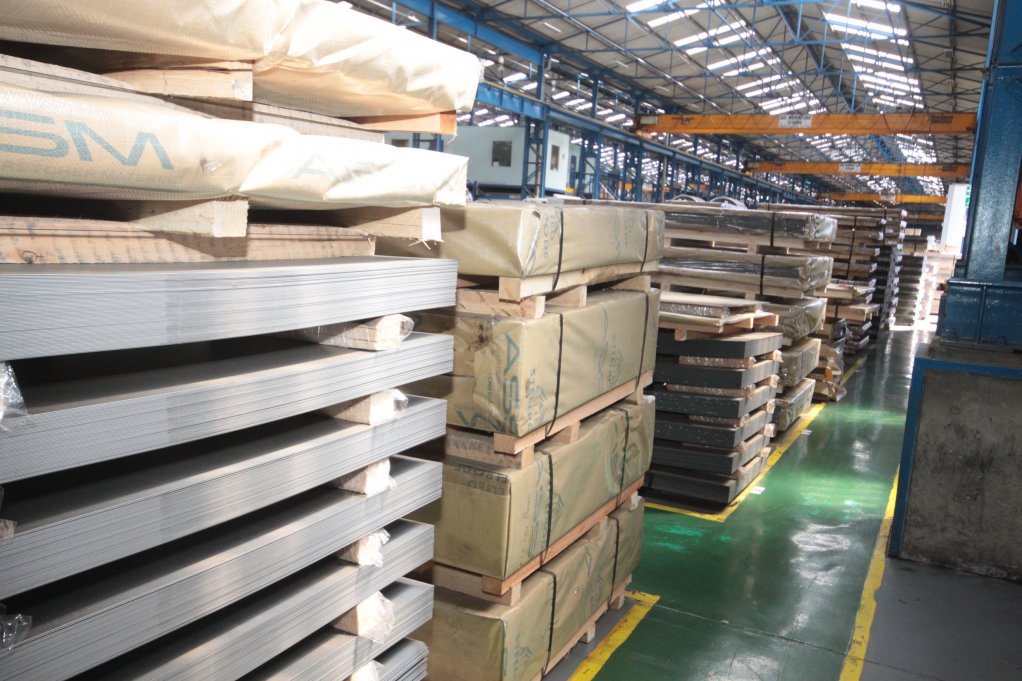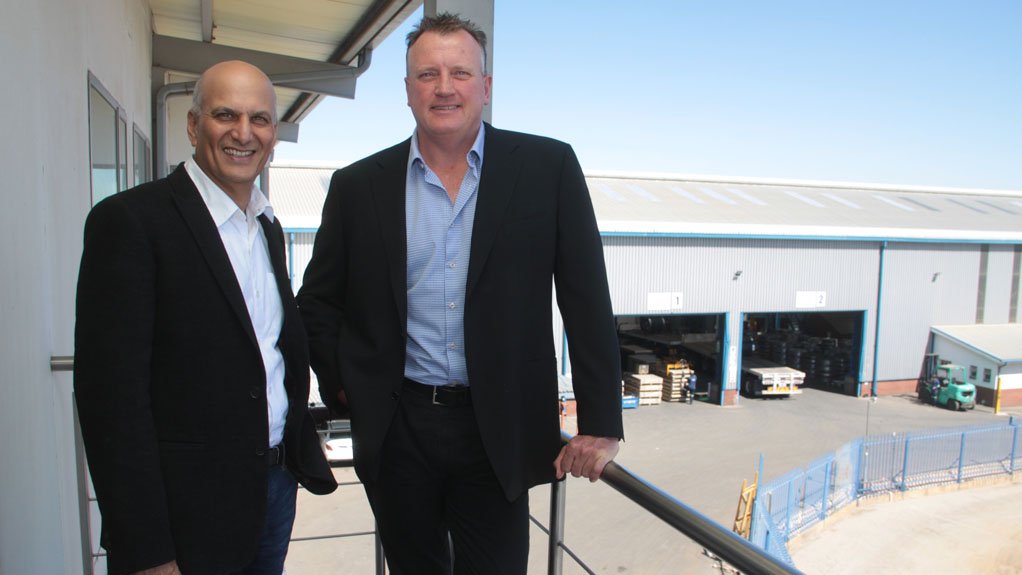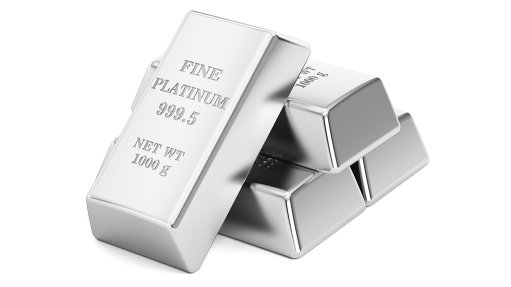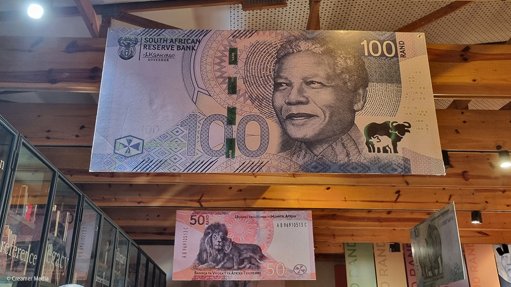Steel company raises the bar in Africa with new technologies



STRETCHING CAPABILITIES Branded Allied Steelrode Stretcher Material is produced at a purpose-built steel-stretching facility in Midvaal, Gauteng
FORWARD THINKING Arun Chadha and Warne Rippon are preparing Allied Steelrode to meet future demands for stainless steel products in Africa
Taking a long-term view that predicts significant growth in demand for stainless steel products in Africa in the next few years, steel supplier and processing company Allied Steelrode has invested in advanced processing technologies that will cement its position as a market leader in product quality.
“Globally, activity in the stainless steel industry is picking up and, although its trickle-down effect into Africa has been slow, I am very optimistic about the future growth prospects in South Africa and the broader sub-Saharan region,” says Allied Steelrode CEO Arun Chadha.
He adds that, with stainless steel being used in so many industries, demand and supply dynamics are ever-changing, requiring a high degree of agility from companies operating in the industry. In light of this, Allied Steelrode is providing the market with its Allied Steelrode Stretcher Material (ASSM) brand of stretcher-levelled steel products, which are produced at the company’s dedicated steel stretching facility, in Midvaal, Gauteng.
Last year, Allied Steelrode installed South Africa’s first purpose-built steel-stretching plant, featuring a heavy-gauge stretcher leveller that produces flat sheet and plates that stay flat after secondary operations, such as laser, plasma or water jet cutting or shearing, turret punching, bending, forming, welding and finished assembly.
Allied Steelrode executive director Warne Rippon explains that traditional methods of straightening coiled steel to produce flat sheets leave latent stresses in the structure that cause it to buckle when energy or heat is applied. In contrast, the stretcher leveller stretches the entire cross section of the steel sheet past its yield point, relieving internal stresses and ensuring that it does not distort.
Using stretcher-levelled steel is essential for laser cutting to eliminate the risk of damage to the laser head. With stretcher- levelled steel, the laser can, moreover, start cutting as close as 1 mm from the edge of the sheet with common cuts easily attainable and to level 900 metal clad material – instead of the typical 10 mm – which greatly reduces the amount of steel lost to scrap, and produces significant cost savings for customers. The use of stretcher- levelled steel also allows for trouble-free continuous production with minimal technical supervision.
“With the market now familiar with the benefits provided by stretcher-levelled steel, demand has been so high that we have placed an order for a second, even more powerful, stretcher leveller to provide additional capacity. We are very proud that our investment in this advanced technology has proven to be a success, as it bears testimony to our ‘early adopter’ status, while ensuring that our customers are provided with the highest-quality products and services,” says Rippon.
Steeling for Growth
Through this investment, Rippon believes that Allied Steelrode has prepared itself to meet the growth in demand for stainless steel in Africa.
Rippon highlights that the logistics sector presents an important growth area in South Africa for stainless steel products, with the transportation of ore and coke (a fuel produced from coal) from source to port by State-owned rail company Transnet having increased significantly since August. He explains that the rail wagons that hold the ore and coke are traditionally manufactured from noncorrosive, rust- resistant 3 chrome (Cr) 12 stainless steel.
“With the locomotives for Transnet’s expansion programme having been ordered, wagons will soon need to be manufactured. Allied Steelrode supplies 3Cr12 to Transnet, as we have the correct equipment for levelling it, and this will likely ensure significant demand growth in the first quarter of 2018.”
In addition, Rippon predicts that demand will also increase from the petrochemicals industry, with smaller mines requiring smaller amounts of sulfuric acid to be trucked in stainless steel tankers, rather than transporting them through larger transport networks.
As well as serving the South African market, Allied Steelrode exports its products to Zambia, Zimbabwe, Malawi and Mozambique, and will also target the Democratic Republic of Congo, Namibia, Botswana and Malawi as new growth markets. Chadha points out that these countries have very large agriculture sectors – dominated by tobacco, dairy and fruit – highlighting that the associated processing facilities require stainless steel products for hygiene purposes, as well as food and beverage longevity.
Exporting to markets that are highly dependent on foreign investment for major projects is not, however, without its challenges, says Rippon. He notes that, while sub-Saharan Africa has historically depended on funding from the US and Europe, China has increased its presence in the region, but imposed limitations on its funding that specifies that project components – including steel – be obtained from China.
“To manage this, we are in constant dialogue with the steel mills in South Africa and have, in many instances, negotiated a parity pricing structure that ensures that our exported products can compete with Chinese products on price.”
Rippon highlights that this, combined with Allied Steelrode’s proximity to its African markets – resulting in quicker delivery times – ensures its favour among consumers in the region.
Chadha stresses that building the company’s reputation in sub-Saharan Africa is an important focus, with significant demand growth evident for modern stainless steel products, such as eating and cooking utensils, and tubing for furniture and architectural finishes such as balustrades. Expansion and renovation work, as well as exploration activities at mines, is also likely to increase as commodity prices recover, further driving demand.
Allied Steelrode has also partnered with a fabrication company to build stainless steel electrical houses for the petrochemicals industry.
Article Enquiry
Email Article
Save Article
Feedback
To advertise email advertising@creamermedia.co.za or click here
Press Office
Announcements
What's On
Subscribe to improve your user experience...
Option 1 (equivalent of R125 a month):
Receive a weekly copy of Creamer Media's Engineering News & Mining Weekly magazine
(print copy for those in South Africa and e-magazine for those outside of South Africa)
Receive daily email newsletters
Access to full search results
Access archive of magazine back copies
Access to Projects in Progress
Access to ONE Research Report of your choice in PDF format
Option 2 (equivalent of R375 a month):
All benefits from Option 1
PLUS
Access to Creamer Media's Research Channel Africa for ALL Research Reports, in PDF format, on various industrial and mining sectors
including Electricity; Water; Energy Transition; Hydrogen; Roads, Rail and Ports; Coal; Gold; Platinum; Battery Metals; etc.
Already a subscriber?
Forgotten your password?
Receive weekly copy of Creamer Media's Engineering News & Mining Weekly magazine (print copy for those in South Africa and e-magazine for those outside of South Africa)
➕
Recieve daily email newsletters
➕
Access to full search results
➕
Access archive of magazine back copies
➕
Access to Projects in Progress
➕
Access to ONE Research Report of your choice in PDF format
RESEARCH CHANNEL AFRICA
R4500 (equivalent of R375 a month)
SUBSCRIBEAll benefits from Option 1
➕
Access to Creamer Media's Research Channel Africa for ALL Research Reports on various industrial and mining sectors, in PDF format, including on:
Electricity
➕
Water
➕
Energy Transition
➕
Hydrogen
➕
Roads, Rail and Ports
➕
Coal
➕
Gold
➕
Platinum
➕
Battery Metals
➕
etc.
Receive all benefits from Option 1 or Option 2 delivered to numerous people at your company
➕
Multiple User names and Passwords for simultaneous log-ins
➕
Intranet integration access to all in your organisation




















